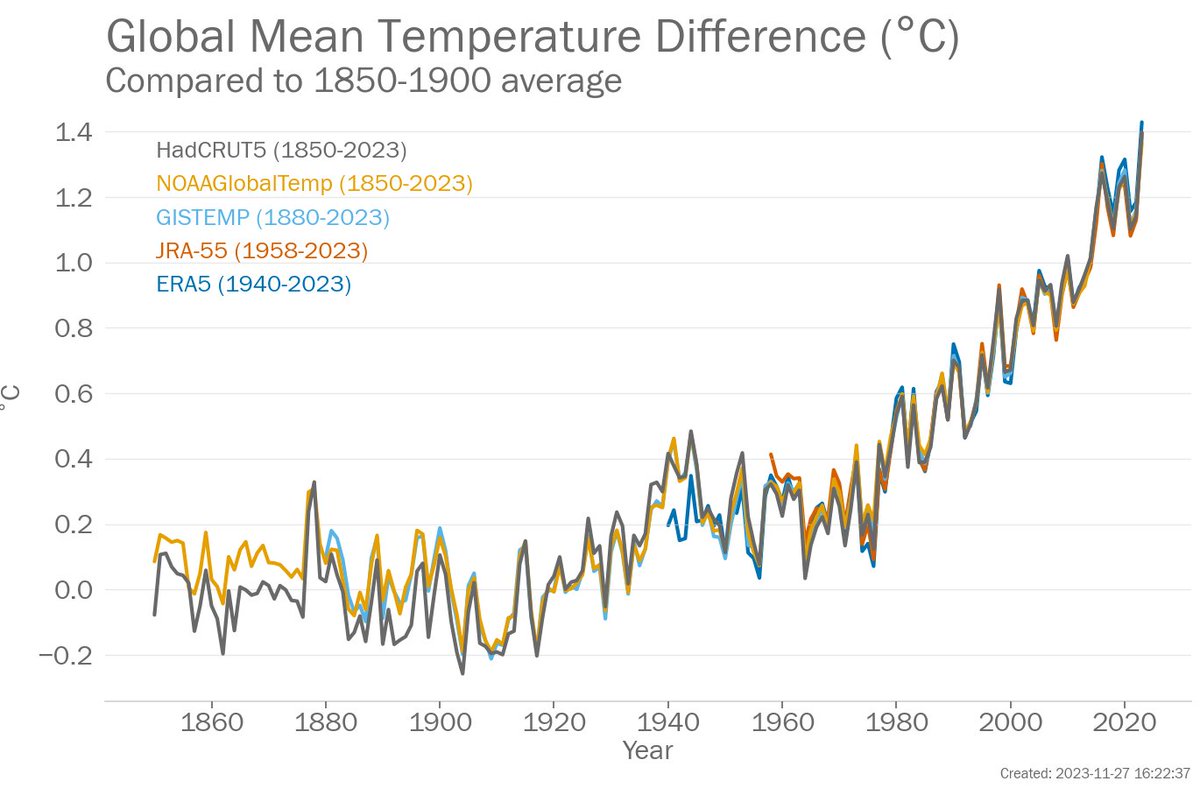
Climate scientist, diagram monkey, probabilistic historian. All views and opinions are my own. Not, sadly, a promise of novelty but a disclaimer. He/him
How to get URL link on X (Twitter) App


 2. Concentrations of the three key greenhouse gases - CO₂, CH₄ and N₂O - reached record highs in 2023 (the last full year of data). Again. CO2 reached 420±0.1ppm, 151% of pre-industrial levels. Look at them all going up. We did that.
2. Concentrations of the three key greenhouse gases - CO₂, CH₄ and N₂O - reached record highs in 2023 (the last full year of data). Again. CO2 reached 420±0.1ppm, 151% of pre-industrial levels. Look at them all going up. We did that. 

 You can read the report here:
You can read the report here: 


 1850-1900: stand in for "pre-industrial", used by the IPCC SR 1.5 and WMO annual statements.
1850-1900: stand in for "pre-industrial", used by the IPCC SR 1.5 and WMO annual statements.